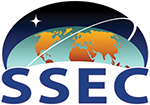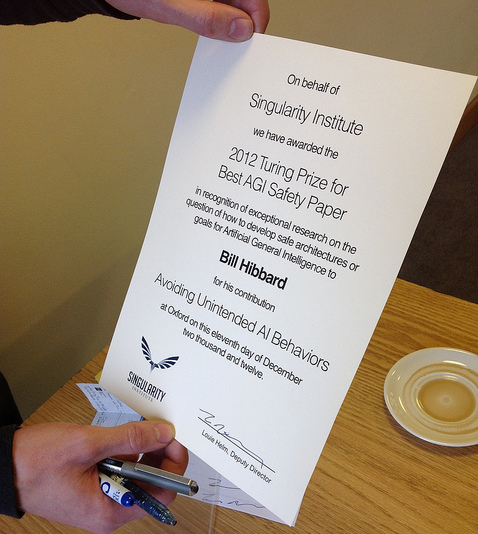Bill Hibbard Awarded Turing Prize
Bill Hibbard, an Emeritus Senior Scientist at the University of Wisconsin-Madison Space Science and Engineering Center, recently received the Singularity Institute’s Turing Prize for his paper: “Avoiding Unintended AI Behaviors.” The paper discusses some possible sources of unintended behaviors in powerful Artificial Intelligence (AI) systems, and describes ways to avoid them.
The AGI-12 conference, held on 08-11 December 2012 at the University of Oxford in the UK, gathered international and industry researchers in the field of Artificial General Intelligence. The Singularity Institute, a leader in the study of AI and its effect on the future, awarded the Turing Prize in honor of the centenary of computing pioneer Alan Turing, who was among the first to recognize the importance of machine intelligence.
Hibbard likens the work that he has been doing on artificial intelligence to studying climate change. “I’m not trying to create AI,” he says. “That will be done by IBM, Google, DARPA or some other organization with large resources. I’m part of a community studying potential dangers of AI. Just as climate change is an unintended consequence of human population growth, industry, transportation, and warm houses, AI will also have unintended consequences.”
The Turing Prize is awarded for work that not only increases awareness of this important problem, but also makes technical progress in addressing it.


